Although we celebrated World Poetry Day with this post earlier in the year, the Australian Children’s Poetry website tells me that August is poetry month and I think there can never be too many days, weeks or months for reading and writing poetry. I even got into the swing of things by having my poem A Very Funny Animal published on the Australian Children’s Poetry website in early August. And just today, my poem Science Questions Everything was published to coincide with Science Week. Who knows, maybe there’ll be a few more this month.
Why read poetry to children?
Poetry is a great tool for learning language. When children listen to or recite poetry, they are learning the rhythms and sounds of language, exploring ideas and how to express them, expanding vocabularies, deepening understanding in nuances of meaning, and having fun with thoughts and their expression.
Children are exposed to rhythm and rhyme from their earliest days through nursery rhymes, chants and songs as well as the text of picture books. It is important for children to have opportunities for appreciating and exploring poetry into and throughout their school years. Our Australian Curriculum places poetry firmly into the literature strand of English teaching each year. But it is not necessary to relegate poetry just to a poetry unit of work when stipulated by the curriculum. Poetry, rhymes, chants and songs can be easily incorporated into the daily class program.
Poetry books and resources
The Australian Children’s Poetry website (mentioned above) is an excellent resource when you are looking for poems to share with children. With a new poem added every day, you will never be at a loss for poems to read. You can search for poems on different topics or by different poets and even find poems with teacher notes.
Another great resource is Science Poems by Celia Berrell with an abundance of poems that link to the curriculum.
The Bill Martin Jr Big Book of Poetry is one of my favourite collections. It contains a variety of poem types on a wide range of topics, including Mother Goose and nonsense rhymes, poems about animals, the seasons and friendships, classics poems and modern. It’s a delight to dip into. You’ll find poems you remember and loved in your childhood and new poems to explore.
Michael Rosen, who you may know as the author of Going on a Bear Hunt shares some recommendations for teaching poetry on his blog. Although the suggestions were written for a year one teacher, I think the suggestions could be applied in other years. Following his recommendations would more than cover the expectations of the Australian Curriculum, and what a wonderful way to turn children (and yourself) onto poetry.
A few years ago, I had the pleasure of interviewing Australian poet June Perkins about her beautiful book of poetry for children Magic Fish Dreaming. You can download and read that interview and find out more about June and her poetry here. Her poems are perfect for discussing poetic language and inspiring children to write poems of their own. Her poem Hunting for a Poem helps child find the magic for poems everywhere. June is one of the poets featured on the Australian Children’s Poetry website.
I also got to interview another wonderful poet Jennifer R. Poulter. Although the interview (which you can read and download here) was about her picture book Hip Hop Hoorah! Zoo Dance, Jennifer is a great advocate for poetry in schools and provides generous support for teachers with free downloads of poetry and teaching notes which can be accessed from her Facebook Author page. You can also find many of Jennifer’s poems on the Australian Children’s Poetry website.
readilearn poetry resources
Here at readilearn, we also have many resources to support your teaching of poetry; including:
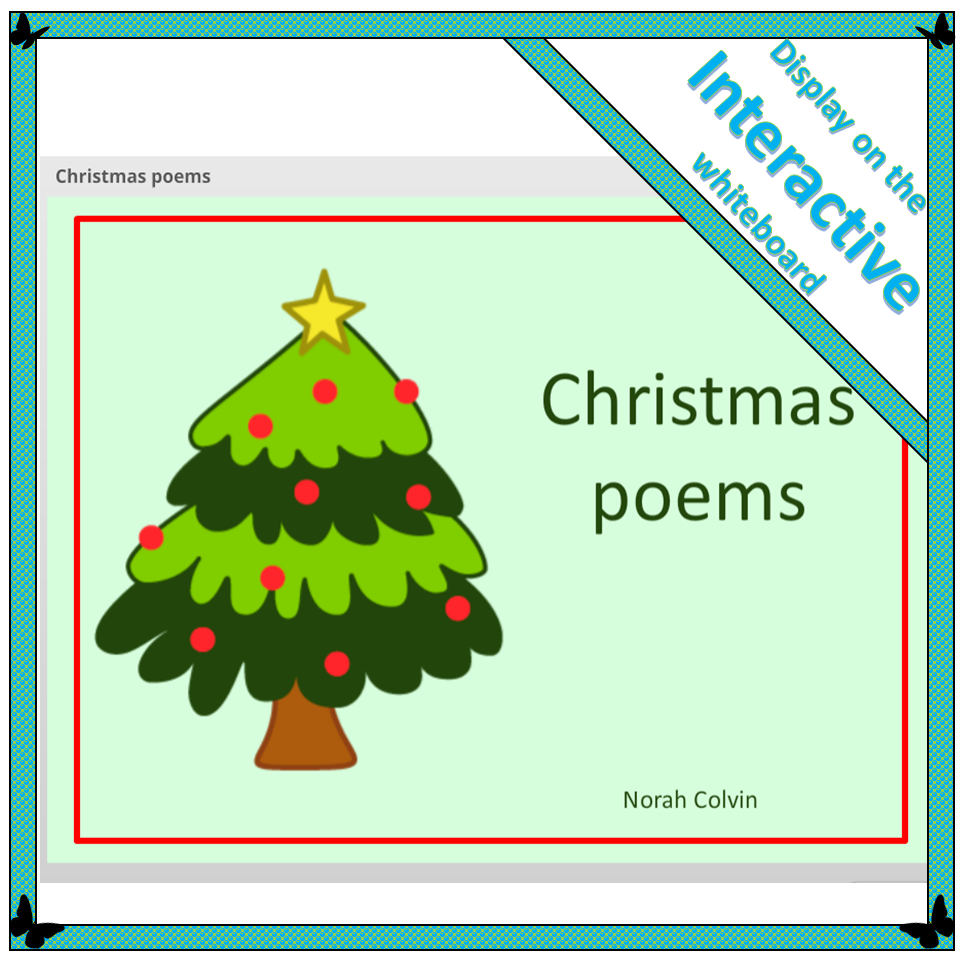
Christmas poems has examples and templates for writing five different forms of poems: acrostic, sound, haiku, I love and shape poems. While the examples have a Christmas theme, the types of poems are suitable for any time of the year.
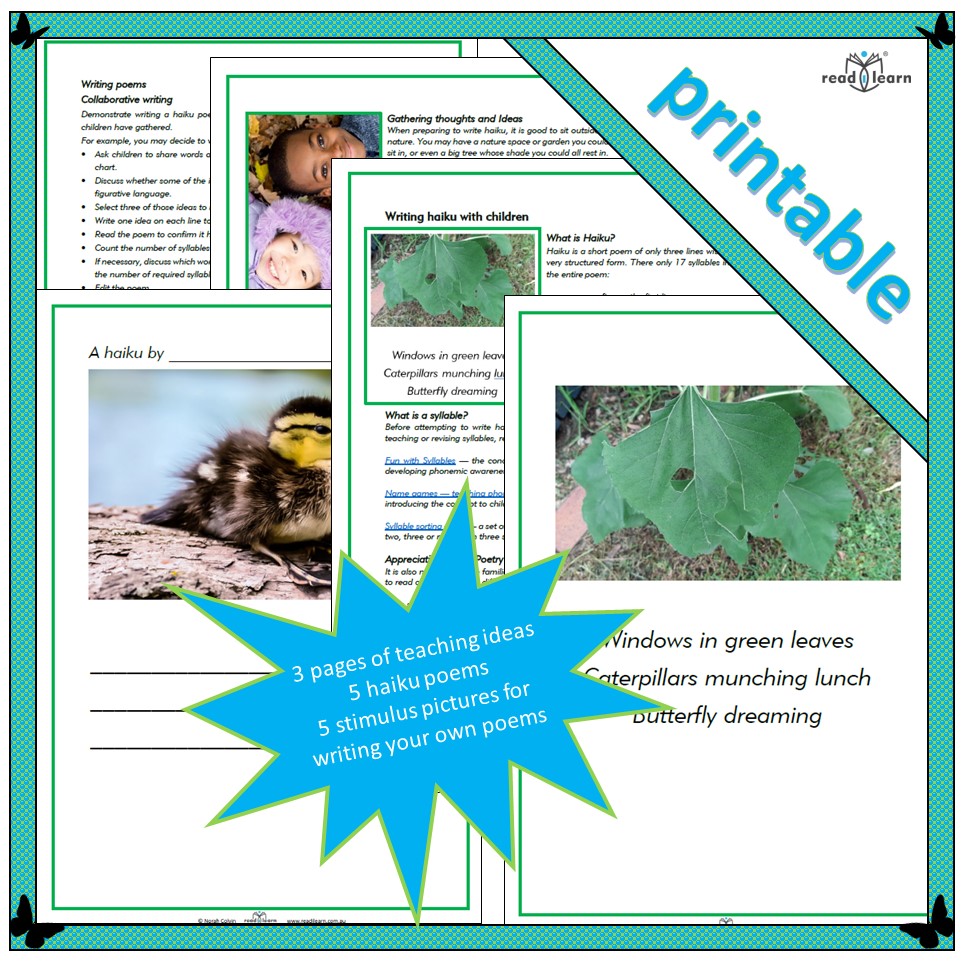
Writing haiku with children is a collection of five haiku poems for reading and five stimulus photos for writing. It can be used to introduce children to the structure of haiku poetry and to encourage them to write haiku poems of their own. The resource includes information about the structure of haiku poetry as well as teaching suggestions.
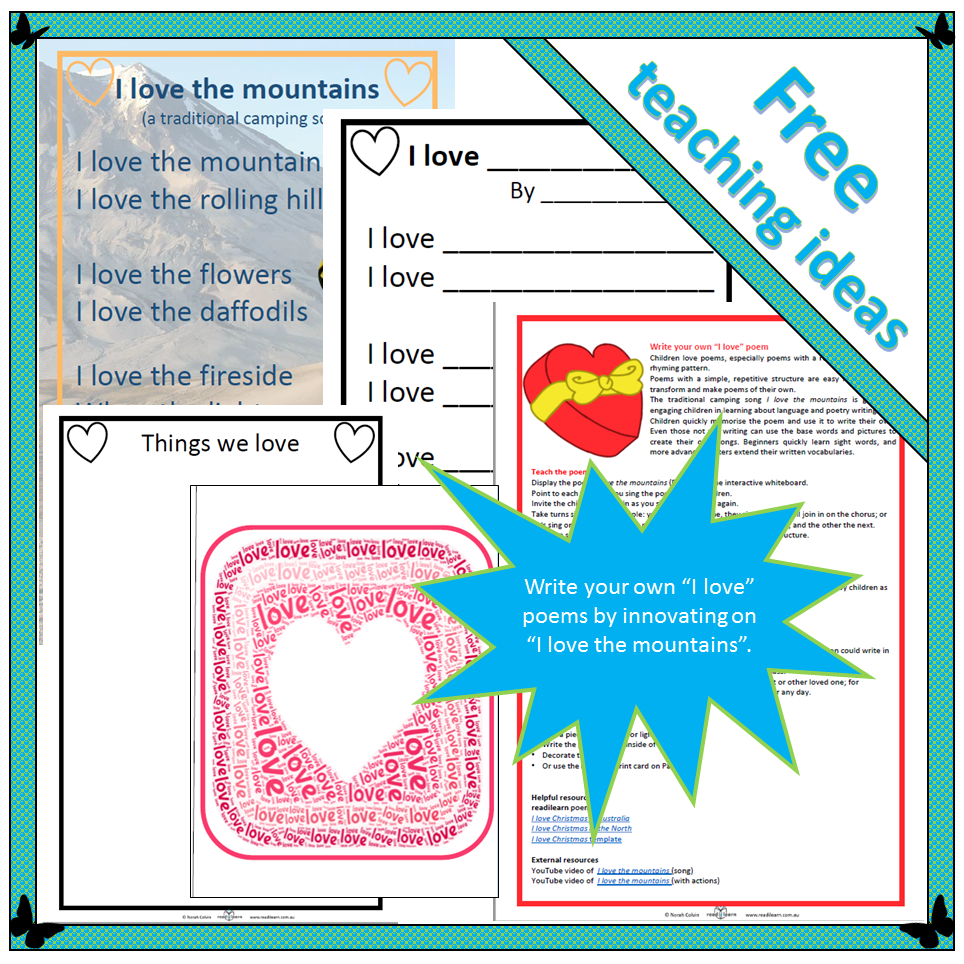
Write your own “I love” poem encourages children to innovate on the traditional camping song I love the mountains.
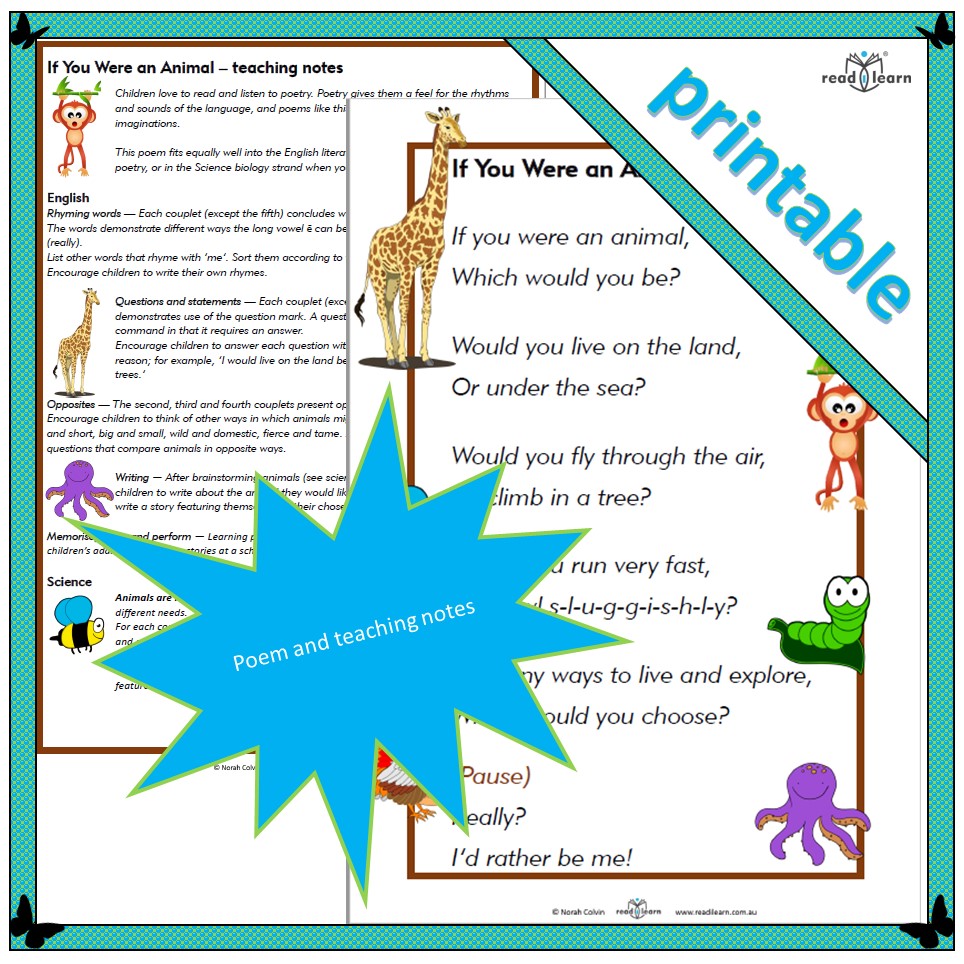
If You Were an animal —poem and teaching notes includes a fun poem to recite with lesson ideas for both English and Science.
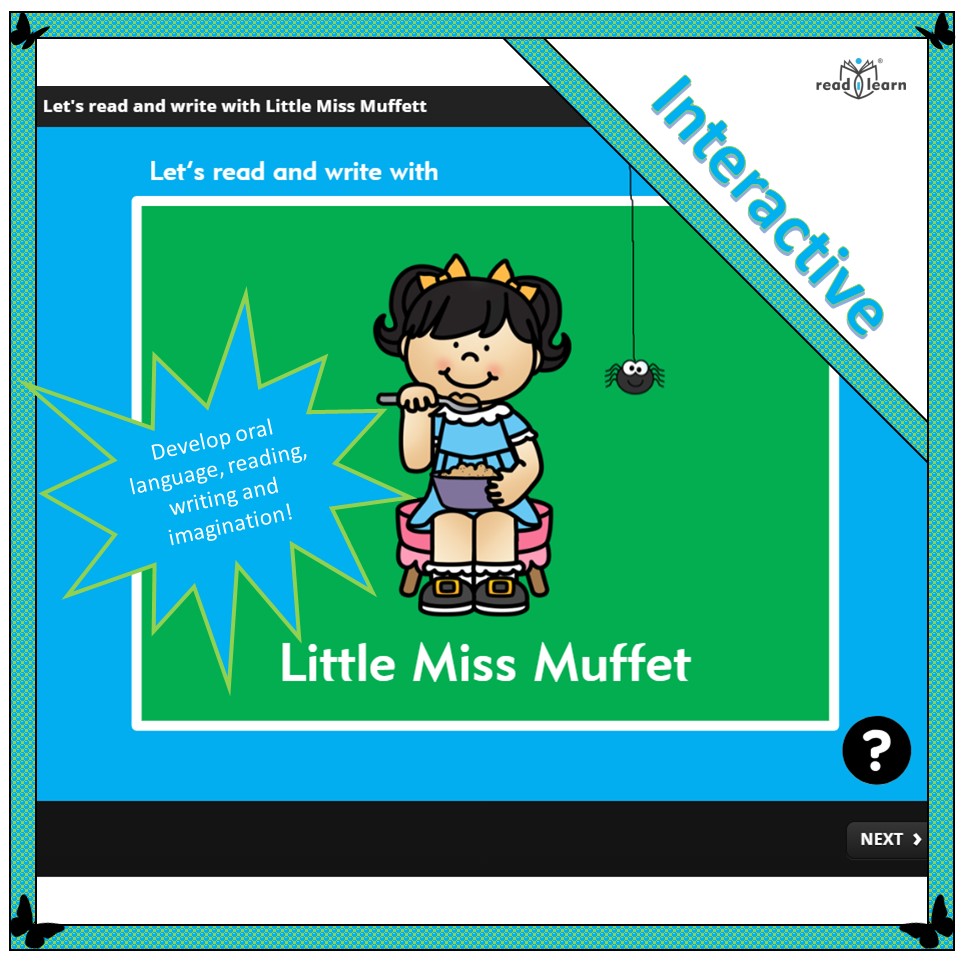
Let’s read and write with Little Miss Muffet provides suggestions for a series of lessons developing oral language, reading, writing and imagination.
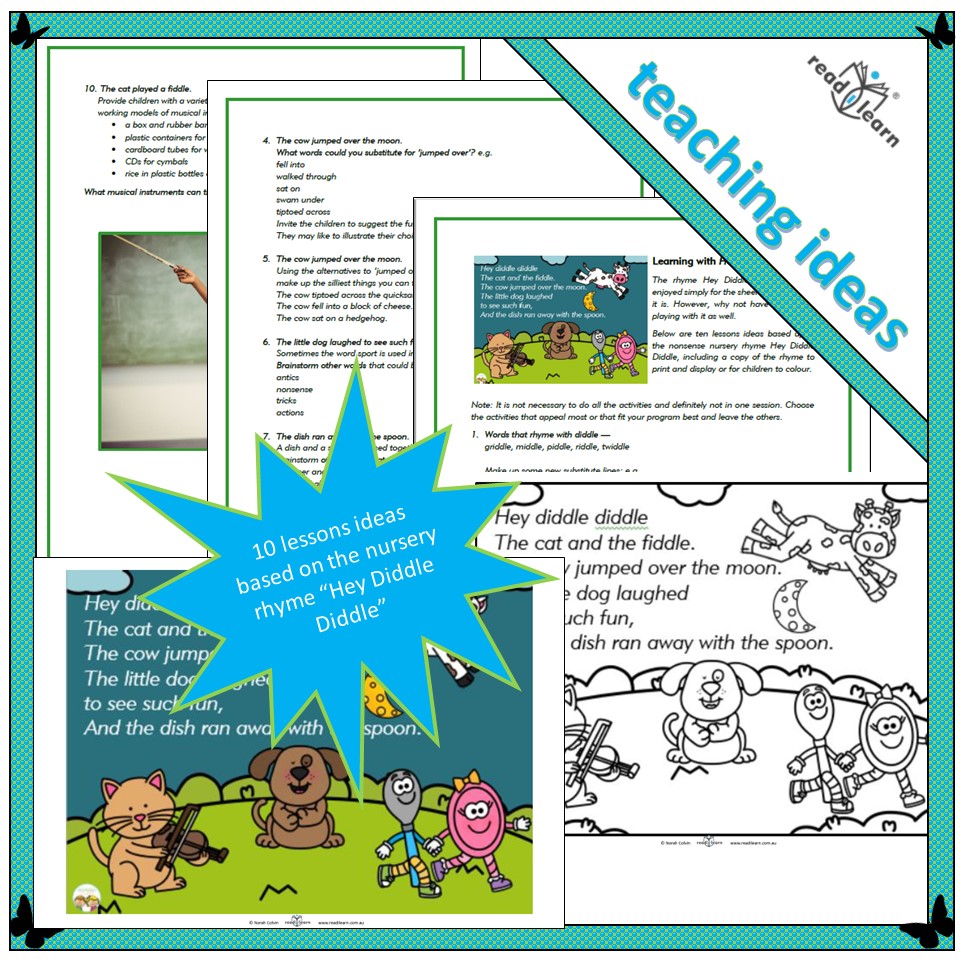
Learning with Hey Diddle Diddle presents ten lesson ideas for extending learning from the nonsense nursery rhyme, including rhyming, word meaning, synonyms and word substitutions.
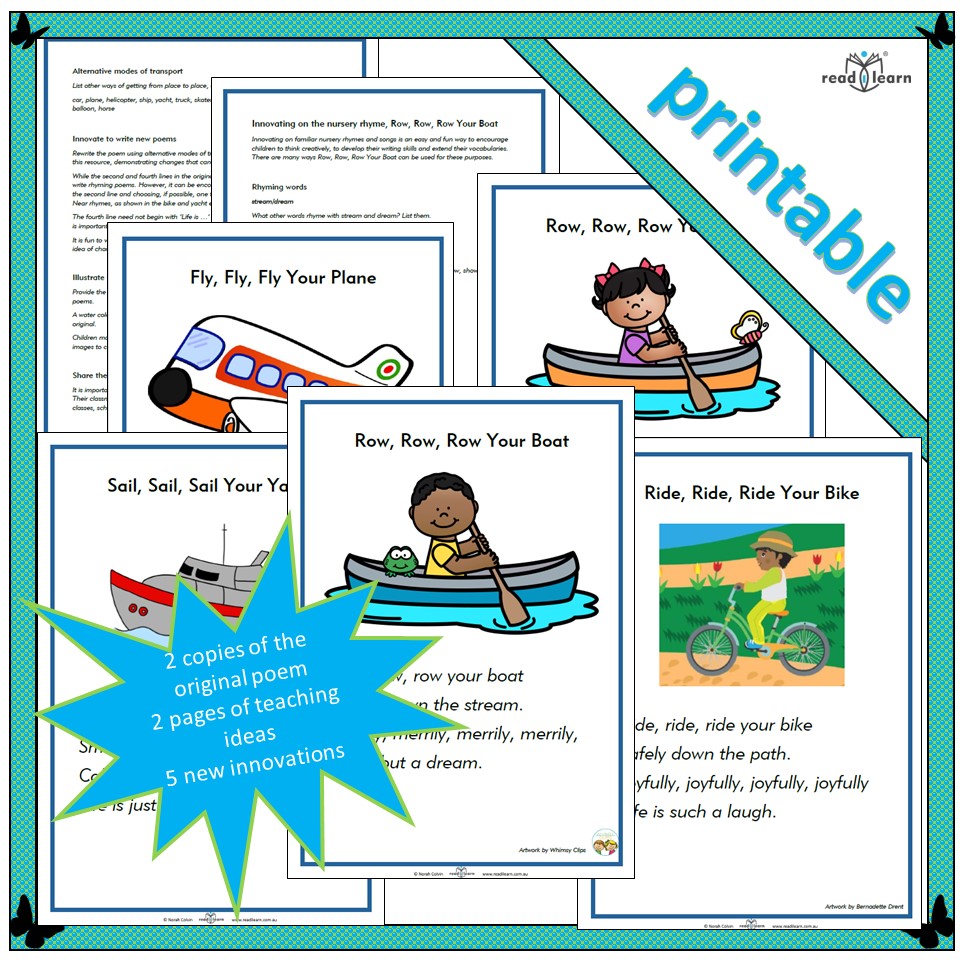
Row, Row, Row Your Boat includes 2 copies of the original rhyme, 2 pages of teaching suggestions and 5 new innovations on the rhyme The rhyme can be used to help develop children’s language, creativity and writing skills when they use the familiar structure to create new poems of their own.
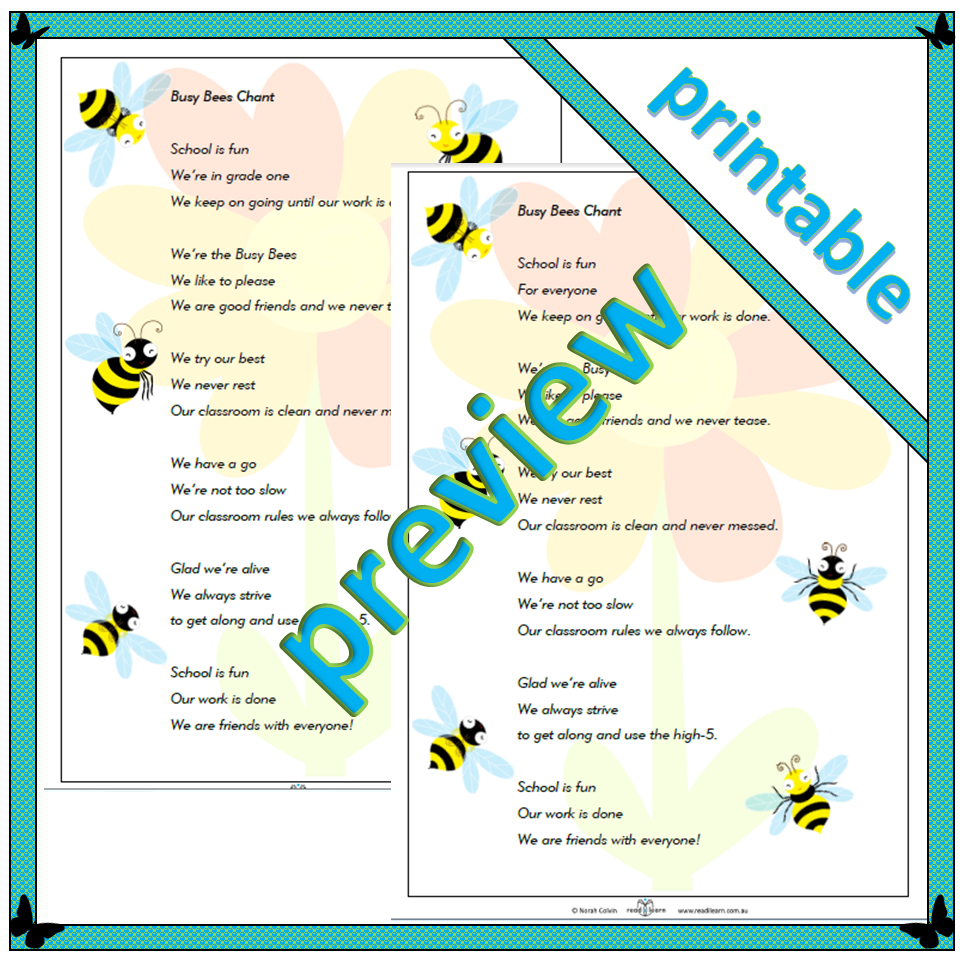
Busy Bee chants help to foster and sense of belonging and can be learned and chanted every day to send the children out of the classroom at the end of the day feeling joyous and happy to be at school.
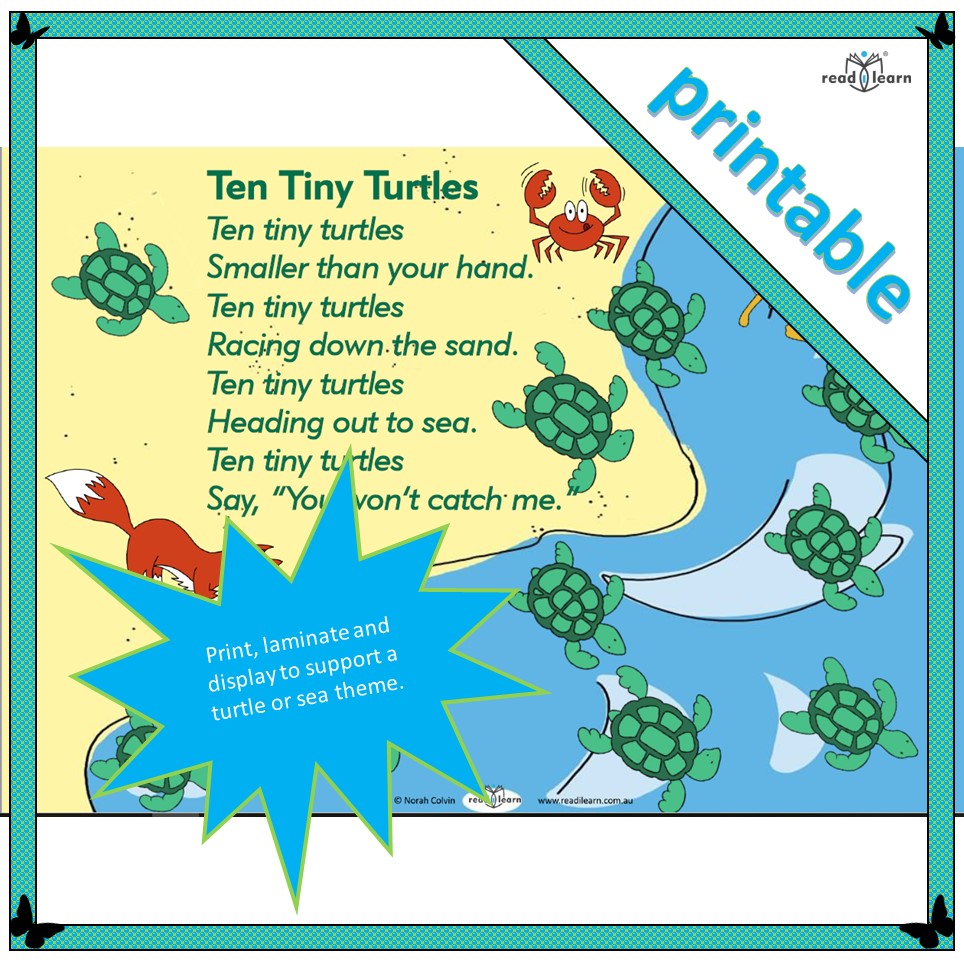
Ten Tiny Turtles is a number rhyme that can be used to support a turtle or sea-themed unit of work.
I hope you and your children enjoy reading and writing poetry in August, Poetry Month.
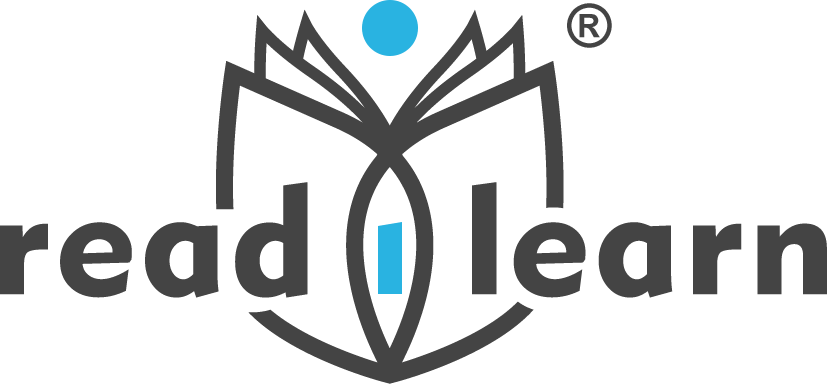



Jacqui
August 16, 2023Love the templates, Norah. Great idea for kids just starting on creativity.
Norah Colvin
August 16, 2023Thanks, Jacqui. Kids can have a lot of fun writing poems from an early age. They love playing with language.
Sarah Brentyn
August 18, 2023Wonderful, Norah! 🙂
Norah Colvin
August 18, 2023Thanks so much, Sarah. 🙂
DGKaye
August 22, 2023What a fantastic way to engage children and turn them into future poets! <3
Norah Colvin
August 22, 2023Thanks, Debby. Poetry is always a hit with children. 🙂